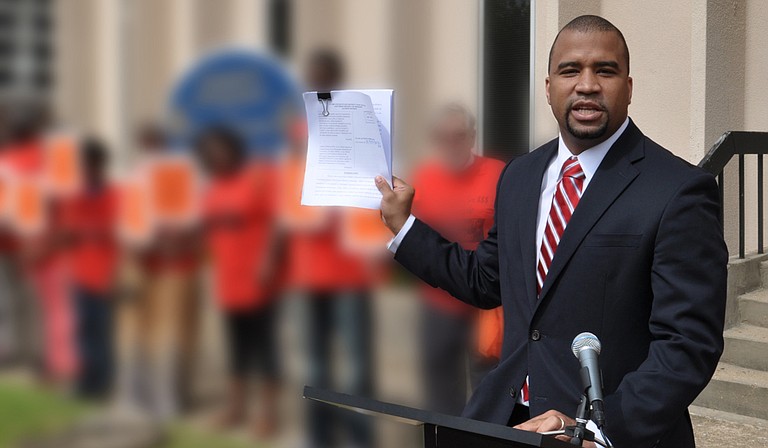Tuesday, August 23, 2016
JACKSON, Miss. (AP) — A group suing over how Mississippi's charter schools are funded and governed is pushing for a quick ruling in the case.
The Southern Poverty Law Center, representing a group of Jackson residents, filed a motion for summary judgment Monday, telling Hinds County Chancery Judge Dewayne Thomas that the only dispute in the case involves interpreting the state Constitution, making it ripe for decision.
Law center lawyer Jody Owens told reporters Tuesday that plaintiffs want to speed the case along because they ultimately expect an appeal to the state Supreme Court.
The challengers say charter schools are barred from getting state money because they are not overseen by the state superintendent or a local school superintendent, and thus under previous state Supreme Court decisions, don't qualify as "free schools." The state Constitution says only "free schools" can get public money. That part of the constitution is in a section banning public money for religious schools.
The plaintiffs also say a 2007 Supreme Court decision bars the transfer of property tax collections from one school district to another. Each charter school is technically set up as separate district in Mississippi, meaning the three schools now operating in Jackson are not part of that district.
Lawyers for the state say the act is constitutional.
Four parents of children in charter schools are trying to intervene in the lawsuit, but the law center is fighting that move . Their lawyer, Mike Hurst, said the case isn't ready for Thomas to rule.
"I think the motion for summary judgment is simply a restatement of the plaintiffs' complaint, and I think once the facts come out, the court will rule the Charter Schools Act is constitutional," Hurst said.
The plaintiffs project that the state and Jackson will transfer $4 million this year to three charter schools. About one-third of that money is collected from property taxes on buildings, vehicles and equipment.
"As taxpayers in Jackson, we expect our property taxes to support public schools in Jackson," said Charles Araujo, one of the plaintiffs. "I believe that in order for children to receive a quality education in Jackson Public Schools, Jackson Public schools must have sufficient funding."
Araujo, who was a social worker in the district before retiring, said he fears financial pressure will cause the district to trim programs for gifted students, special education, buses and counseling.
Owens said that charter school supporters had mischaracterized the lawsuit as an attempt to shut down the existing charter schools. He said that lawmakers could seek a legal way to pay for the schools.
"Our lawsuit focuses only on the funding mechanism," Owens said. "This lawsuit is not and has never been about preventing someone from having a great education."

Comments
Use the comment form below to begin a discussion about this content.
Sign in to comment
Or login with:
OpenID